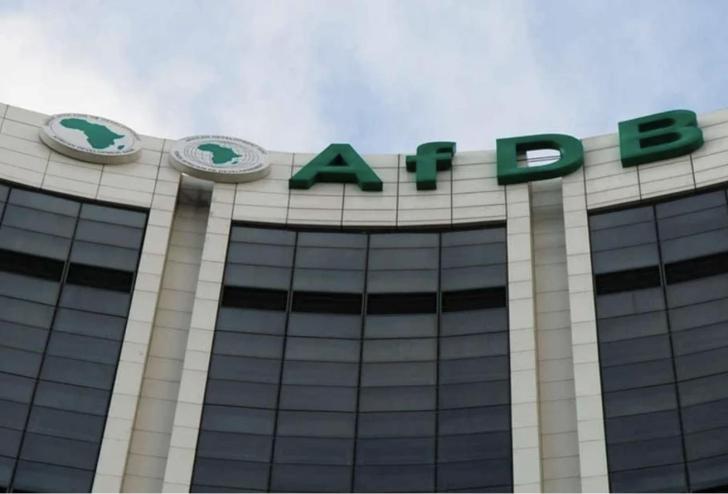News / National
AfDB flags Zimbabwe's annual financing gap
03 Jul 2025 at 08:25hrs |
14 Views

Zimbabwe will require more than US$3.7 billion annually to meet its Sustainable Development Goals (SDGs) by 2030, according to a new economic outlook report released by the African Development Bank (AfDB) in Harare on Tuesday. The figure highlights a significant financing gap as the country struggles to mobilise the resources needed for long-term development amid economic and fiscal challenges.
Presenting the report, AfDB country economist Kelvin Banda said Zimbabwe faces a financing shortfall of 13.4% of GDP, translating to about US$3.76 billion annually by 2030, and 2.3% of GDP (US$650 million) annually if the country seeks to reach the same development targets by 2063, in line with the African Union's Agenda 2063.
"These figures reflect the substantial investment needed in infrastructure, education, energy, and skills development to meet the national and continental targets," Banda said. "We need to make sure we leverage on our resources-natural capital, financial capital, and all other forms-to fast-track these objectives."
The findings come shortly after the Bankers Association of Zimbabwe (BAZ) reported that the country requires over US$10 billion in long-term offshore financing to unlock economic potential, citing key funding gaps in infrastructure, energy, and mining. Zimbabwe's struggle to attract fresh capital has been worsened by its high country risk profile, making it difficult to secure new credit lines on the international market.
While AfDB acknowledged improvements in tax revenue performance, Banda cautioned that public spending inefficiencies, weak revenue mobilisation, and high inflation continue to hamper fiscal consolidation.
"Public spending is constrained by limited revenue mobilisation, inadequate allocative efficiency, and pro-cyclicality worsened by high inflation," Banda said. "The wage bill remains the largest component of government expenditure, accounting for 45% of total spending and 48% of revenue."
However, he noted that the government had shown some discipline in the first quarter of 2025, with spending contained at ZiG18.2 billion, just 1% below budget. The wage bill was ZiG8.47 billion, 4% under target, reflecting prudent expenditure control.
The AfDB report, titled "Making Africa's Capital Work Better for Africa's Development," underscored broader structural and institutional challenges in Zimbabwe's investment environment. These include governance gaps, complex regulations, weak enforcement of property rights, and limited access to affordable, long-term financing.
The report recommends a coherent set of reforms to enhance institutional capacity, align tax and investment policies with national development goals, and foster stronger collaboration between the government, private sector, and development partners.
It also urges Zimbabwe to capitalise on opportunities presented by the African Continental Free Trade Area (AfCFTA) and adopt regional best practices in land and environmental governance to unlock further growth.
With just five years to the 2030 deadline, the report paints a sobering picture of the scale of investment needed and the urgency of reform required to steer Zimbabwe back on a path to sustainable, inclusive development.
Presenting the report, AfDB country economist Kelvin Banda said Zimbabwe faces a financing shortfall of 13.4% of GDP, translating to about US$3.76 billion annually by 2030, and 2.3% of GDP (US$650 million) annually if the country seeks to reach the same development targets by 2063, in line with the African Union's Agenda 2063.
"These figures reflect the substantial investment needed in infrastructure, education, energy, and skills development to meet the national and continental targets," Banda said. "We need to make sure we leverage on our resources-natural capital, financial capital, and all other forms-to fast-track these objectives."
The findings come shortly after the Bankers Association of Zimbabwe (BAZ) reported that the country requires over US$10 billion in long-term offshore financing to unlock economic potential, citing key funding gaps in infrastructure, energy, and mining. Zimbabwe's struggle to attract fresh capital has been worsened by its high country risk profile, making it difficult to secure new credit lines on the international market.
While AfDB acknowledged improvements in tax revenue performance, Banda cautioned that public spending inefficiencies, weak revenue mobilisation, and high inflation continue to hamper fiscal consolidation.
However, he noted that the government had shown some discipline in the first quarter of 2025, with spending contained at ZiG18.2 billion, just 1% below budget. The wage bill was ZiG8.47 billion, 4% under target, reflecting prudent expenditure control.
The AfDB report, titled "Making Africa's Capital Work Better for Africa's Development," underscored broader structural and institutional challenges in Zimbabwe's investment environment. These include governance gaps, complex regulations, weak enforcement of property rights, and limited access to affordable, long-term financing.
The report recommends a coherent set of reforms to enhance institutional capacity, align tax and investment policies with national development goals, and foster stronger collaboration between the government, private sector, and development partners.
It also urges Zimbabwe to capitalise on opportunities presented by the African Continental Free Trade Area (AfCFTA) and adopt regional best practices in land and environmental governance to unlock further growth.
With just five years to the 2030 deadline, the report paints a sobering picture of the scale of investment needed and the urgency of reform required to steer Zimbabwe back on a path to sustainable, inclusive development.
Source - Newsday
Join the discussion
Loading comments…
































